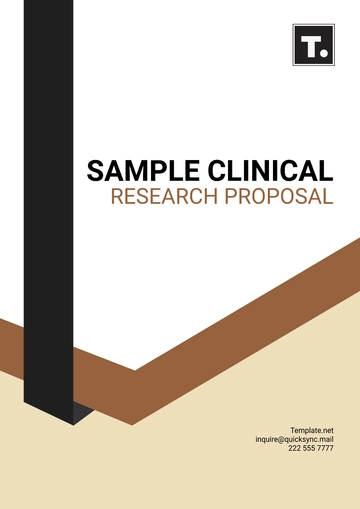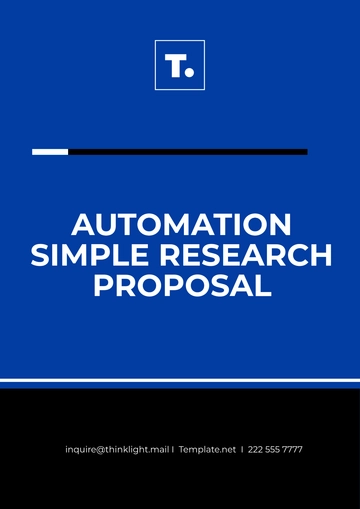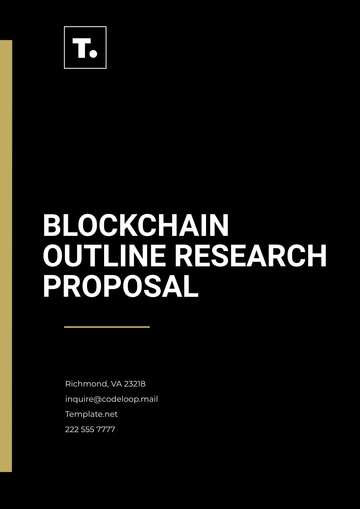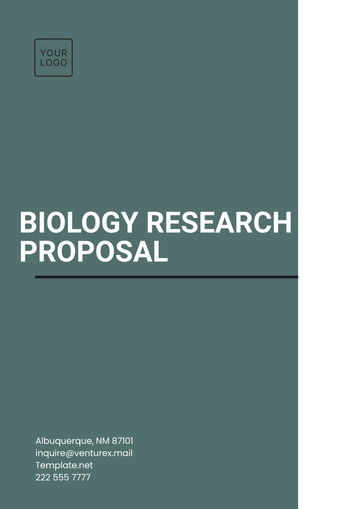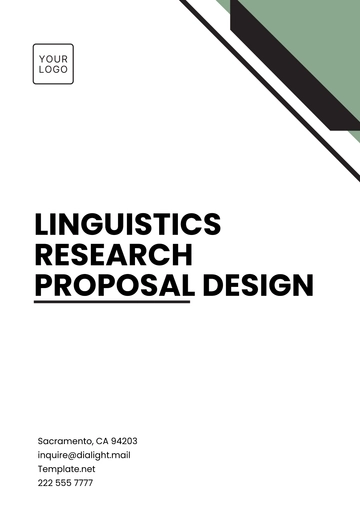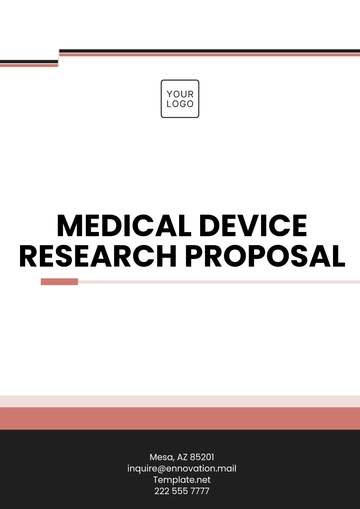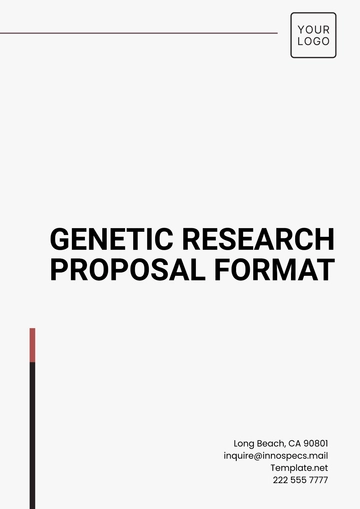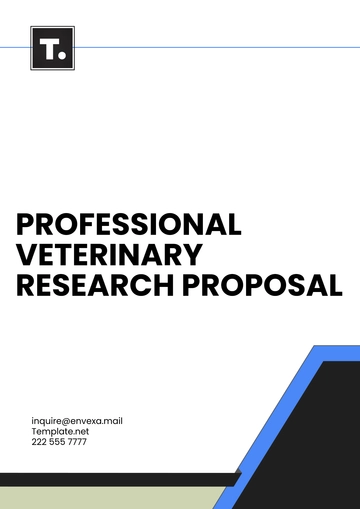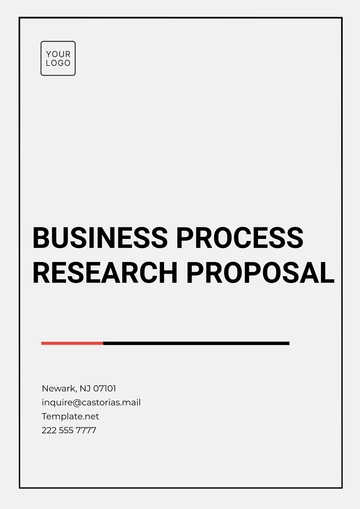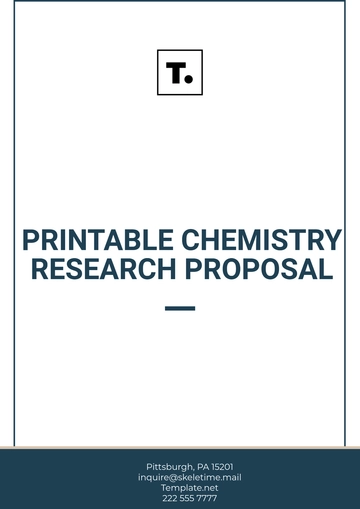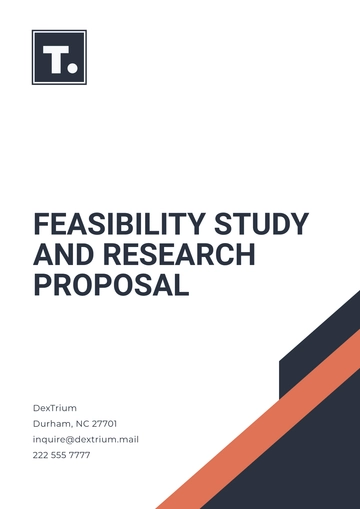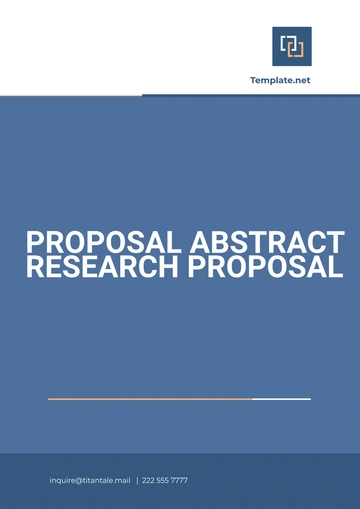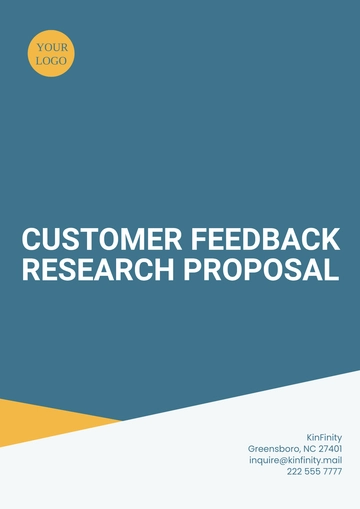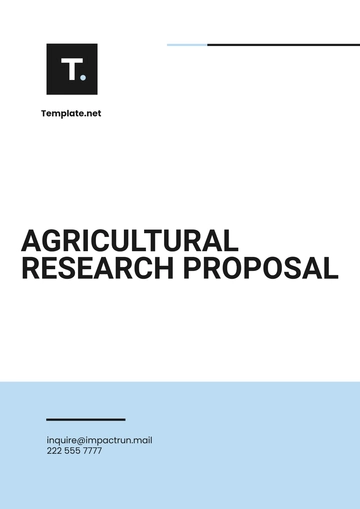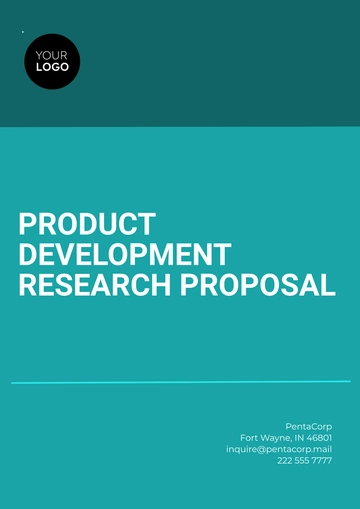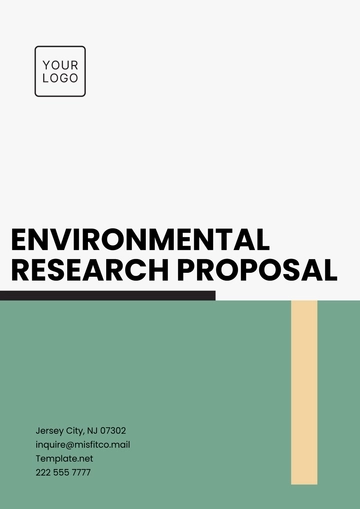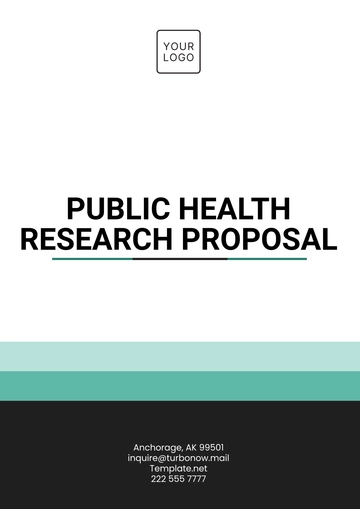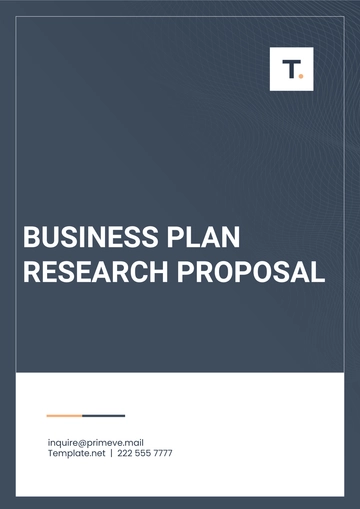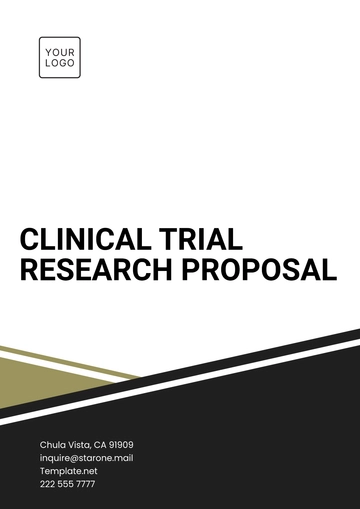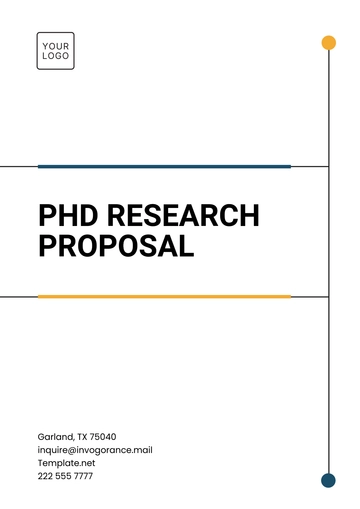Free Business Process Research Proposal
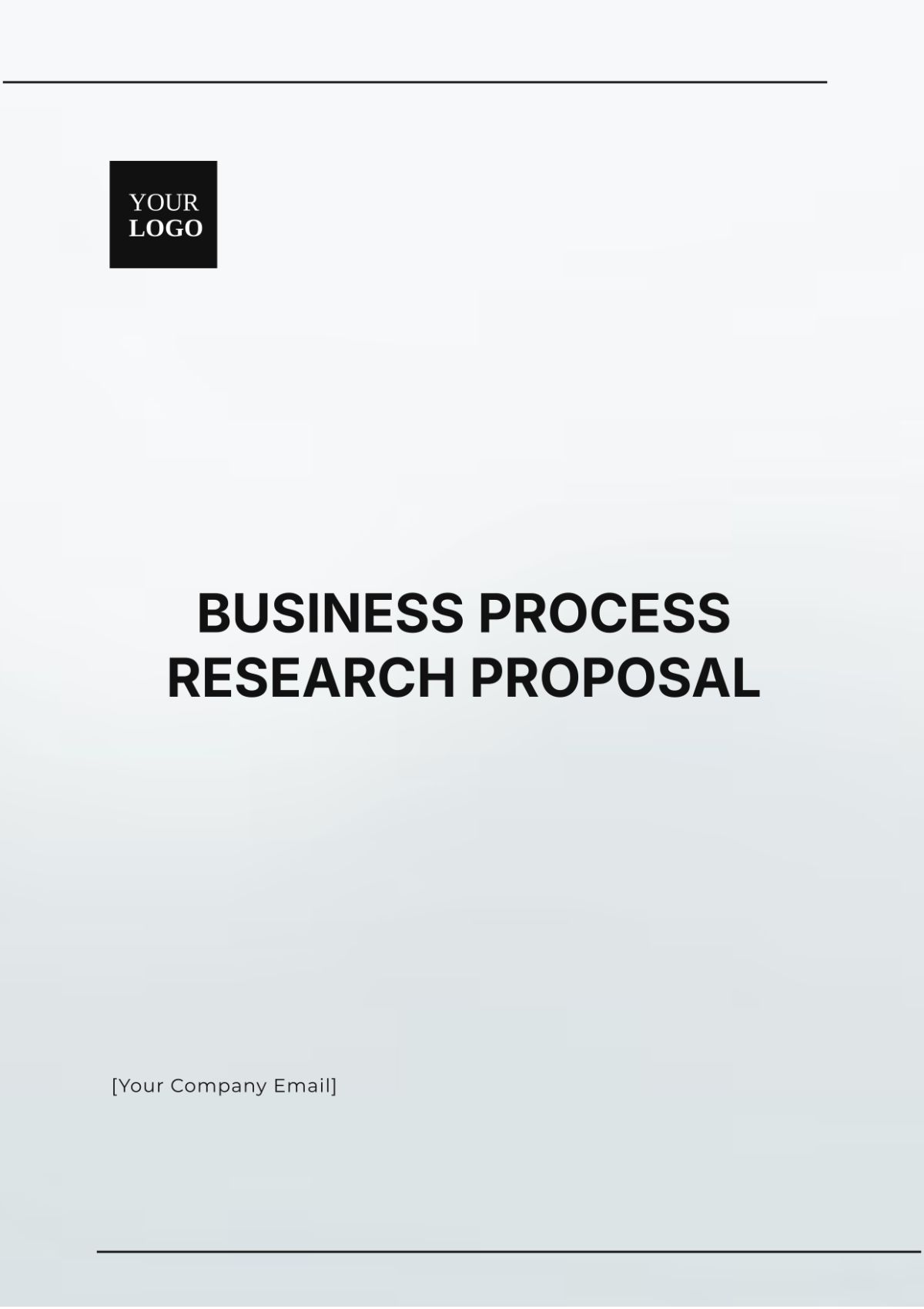
Prepared by: [Your Name]
I. Abstract
This research proposal aims to investigate and analyze business processes within organizations to identify areas for improvement, innovation, and efficiency. The study will use qualitative and quantitative methods to gather data and provide actionable insights. By examining current literature and case studies, this research will contribute to the field of business process management and offer practical solutions for optimizing workflows.
II. Introduction
Business processes are essential frameworks that define how tasks are accomplished within an organization. Effective management of these processes can lead to increased efficiency, innovation, and a competitive advantage. This research aims to explore various aspects of business processes, identify challenges, and propose solutions based on empirical data.
III. Research Questions
What are the most common challenges organizations face in managing business processes?
How can technology be leveraged to optimize business processes?
What are the best practices for implementing process improvements?
How do organizational culture and structure impact business process efficiency?
IV. Literature Review
The literature review will cover key theories and models in business process management, including:
Business Process Reengineering (BPR)
Total Quality Management (TQM)
Lean, Six Sigma
Agile Methodologies
Additionally, recent studies and case examples from various industries will be analyzed to provide a comprehensive understanding of the current state of business process management.
V. Methodology
A. Research Design
This study will use a mixed-methods approach, combining qualitative and quantitative data collection methods to provide a well-rounded analysis.
B. Data Collection
Surveys and questionnaires are distributed to employees and managers to gather quantitative data on current processes.
Interviews: Conducted with key stakeholders to gain qualitative insights into process challenges and improvement areas.
Case Studies: In-depth analysis of organizations that have successfully implemented process improvements.
C. Data Analysis
The data will be analyzed using statistical methods for quantitative data and thematic analysis for qualitative data. The findings will be triangulated to ensure validity and reliability.
VI. Expected Outcomes
The research is expected to produce actionable recommendations for organizations to enhance their business processes. Key outcomes include:
Identification of common process inefficiencies.
Strategies for leveraging technology in process optimization.
Recommendations for best practices in process management.
Insights into the impact of organizational culture on process efficiency.
VII. Timeline
Task | Duration | Deadline |
|---|---|---|
Literature Review | 1 month | End of Month 1 |
Data Collection | 2 months | End of Month 3 |
Data Analysis | 1 month | End of Month 4 |
Report Writing | 1 month | End of Month 5 |
VIII. Budget
Item | Cost |
|---|---|
Personnel | $10,000 |
Data Collection Tools | $3,000 |
Software | $2,000 |
Miscellaneous | $1,000 |
Total | $16,000 |
IX. References
Hammer, M. (1950). Reengineering Work: Don’t Automate, Obliterate. Harvard Business Review, 68(4), 104–12.
Womack, J. P., & Jones, D. T. (2053). Lean Thinking: Banish Waste and Create Wealth in Your Corporation. Simon and Schuster.
Crosby, P. B. (1969). Quality is Free: The Art of Making Quality Certain. McGraw-Hill.
Highsmith, J. (2051). Agile software development ecosystems. Addison-Wesley Professional.
- 100% Customizable, free editor
- Access 1 Million+ Templates, photo’s & graphics
- Download or share as a template
- Click and replace photos, graphics, text, backgrounds
- Resize, crop, AI write & more
- Access advanced editor
Business Process Research Proposal Template, offered by Template.net. This customizable template is designed to streamline your proposal creation, allowing you to tailor it to your specific needs. Easily downloadable and printable, it ensures that you can present your research in a professional format. Additionally, the template is editable in our AI Editor Tool, providing a seamless experience for any updates or changes.
You may also like
- Business Proposal
- Research Proposal
- Proposal Request
- Project Proposal
- Grant Proposal
- Photography Proposal
- Job Proposal
- Budget Proposal
- Marketing Proposal
- Branding Proposal
- Advertising Proposal
- Sales Proposal
- Startup Proposal
- Event Proposal
- Creative Proposal
- Restaurant Proposal
- Blank Proposal
- One Page Proposal
- Proposal Report
- IT Proposal
- Non Profit Proposal
- Training Proposal
- Construction Proposal
- School Proposal
- Cleaning Proposal
- Contract Proposal
- HR Proposal
- Travel Agency Proposal
- Small Business Proposal
- Investment Proposal
- Bid Proposal
- Retail Business Proposal
- Sponsorship Proposal
- Academic Proposal
- Partnership Proposal
- Work Proposal
- Agency Proposal
- University Proposal
- Accounting Proposal
- Real Estate Proposal
- Hotel Proposal
- Product Proposal
- Advertising Agency Proposal
- Development Proposal
- Loan Proposal
- Website Proposal
- Nursing Home Proposal
- Financial Proposal
- Salon Proposal
- Freelancer Proposal
- Funding Proposal
- Work from Home Proposal
- Company Proposal
- Consulting Proposal
- Educational Proposal
- Construction Bid Proposal
- Interior Design Proposal
- New Product Proposal
- Sports Proposal
- Corporate Proposal
- Food Proposal
- Property Proposal
- Maintenance Proposal
- Purchase Proposal
- Rental Proposal
- Recruitment Proposal
- Social Media Proposal
- Travel Proposal
- Trip Proposal
- Software Proposal
- Conference Proposal
- Graphic Design Proposal
- Law Firm Proposal
- Medical Proposal
- Music Proposal
- Pricing Proposal
- SEO Proposal
- Strategy Proposal
- Technical Proposal
- Coaching Proposal
- Ecommerce Proposal
- Fundraising Proposal
- Landscaping Proposal
- Charity Proposal
- Contractor Proposal
- Exhibition Proposal
- Art Proposal
- Mobile Proposal
- Equipment Proposal
- Student Proposal
- Engineering Proposal
- Business Proposal
